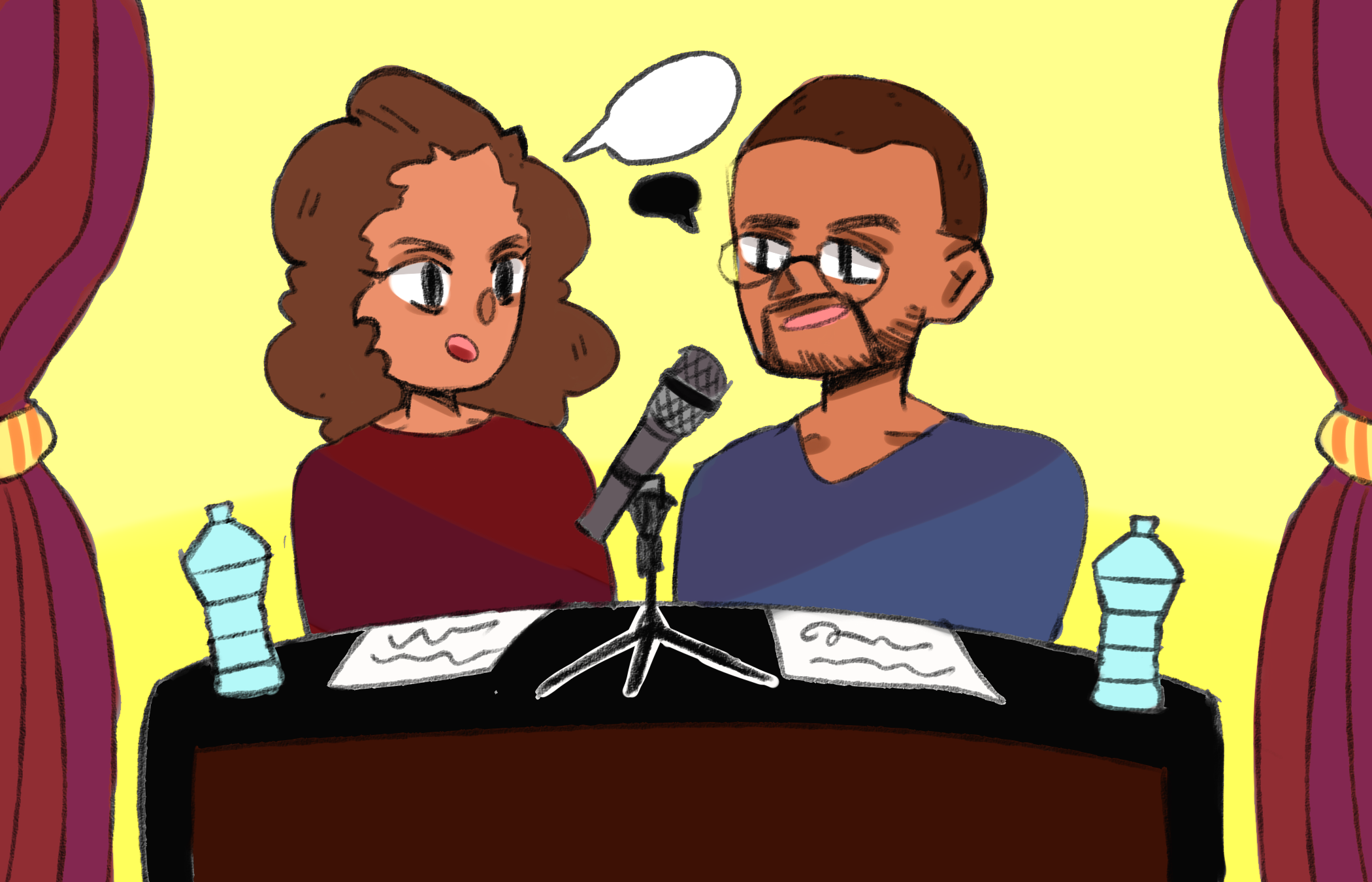Award-winning authors to speak about unique experiences’ influence on their work

(Jennie Wang/Daily Bruin)
Jesmyn Ward and Mitchell Jackson In Conversation
Thursday, 8 p.m.
Royce Hall
Prices vary
By Olivia Mazzucato
Feb. 5, 2019 10:13 p.m.
Young people think they must have everything figured out right after college to achieve success, said Jesmyn Ward.
But the author hopes that by sharing the stories of her experience with fellow writer Mitchell Jackson, they can help dispel the myth of what is possible for students’ futures, she said.
Ward and Mitchell will speak Thursday at an event hosted by the Center for the Art of Performance at UCLA in Royce Hall. They will talk about their work, their writing processes and the impact of their respective experiences on their writing, seeking to find the common ground that underscores their divergent backgrounds – particularly how they both grew up in black and in poverty in America.
“Even though we come from completely different parts of the United States … when I was reading (Jackson’s book), there was a lot about what he survived and what he lived through when he was younger that I could definitely relate to,” Ward said. “I just think that at the least, we’ll find some commonality as we talk about our (writing).”
Ward and Jackson came from different circumstances in their personal lives and literary careers. Ward grew up in Mississippi and has written three novels and one memoir – in 2017, she became the first woman and person of color to win two National Book Awards for Fiction. Jackson, on the other hand, was raised in Oregon and has written a novel and a memoir told in essays, which will be published this spring. He said he is still developing a definitive writing process, something he is eager to discuss with Ward.
For Ward, her writing originates from the places she comes from, the people in her community and the desire to merge the two in her stories. Ward grew up in Mississippi, one of the poorest states in the country, where her family had been living in poverty for generations. Her novels are all set in Mississippi and follow characters as they deal with the impact of natural disasters, poverty and crime, while also focusing on family and community dynamics; sharing those stories made her writing feel necessary as a way to bring readers into that world, she said.
“Essentially, I write because it’s something that I must do. It’s a part of me to tell stories. Storytelling is a part of me,” Ward said. “Language – love of language – is a part of me.”
One element of both Jackson’s and Ward’s writing that has changed over time is the relationship between their lived experience and the stories they tell. For Jackson, the change in political administration in 2016 recontextualized his book “Survival Math: Notes on an All-American Family.” The book details his life growing up, exploring the way in which the marginalized survive oppression and whiteness as an institution – elements he said took on additional relevance after the 2016 election.
“It was really … the evidence of some of the ideas that I had about whiteness and the ways that whiteness asserts itself,” Jackson said. “It also made me feel that (it was) much more necessary to critique (whiteness) in the ways that I could.”
In “Survival Math,” Jackson shares what it was like to grow up in a small black community in Portland, one of the country’s whitest cities. The title refers to the mental calculations he had to make in order to survive in an environment that marginalized and disenfranchised him as a black man.
The biggest change for Ward has been her understanding of the role her writing could play. Initially, she was focused on humanizing her community, she said, by helping readers who didn’t have the same experiences to see her characters as human beings – characters that represented her family and community. But her ideas about the impact of her work have evolved as she has grown older.
“As I’ve traveled the world and the United States and met different readers who have nothing in common with the kind of people that I grew up with and that I lived with … I feel like it’s made me realize that I can reach readers like that too,” Ward said. “Any reader can look at my work, read my work and find something that resonates with them.”
Bineh Ndefru, a doctoral student in materials science and engineering who plans to attend the talk, said Ward’s work resonates in this way with her. Ndefru did not grow up in the American South and did not know much about that perspective firsthand, but hopes to learn more about Ward’s experience.
“I was really moved in the opening of ‘The Fire This Time,’ when (Ward) reminded me of the power of words to assert our humanity and foster community,” Ndefru said. “I am a black woman and a lot of the entries in it felt like affirmations, both some of the somber and happier truths of black life.”
Ward and Jackson both hope that students attending the event are able to take away lessons about writing. Ward said she hopes to remind students that she once stood in similar shoes herself, seeking success with the odds stacked against her. Jackson said he recommends students develop a voice by listening to the language and vocabulary that originates from their own homes and communities.
“(Author) Grace Paley says two ears are very useful in a writer – an ear for academic language and an ear for home,” Jackson said. “And I don’t think one has a great opportunity to create a unique voice unless they can hear home … Always talk to people that are from home so you don’t lose it if you move away.”


